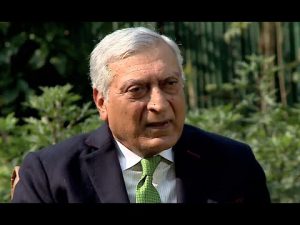There have been talks about the world having multiple Super Powers, but a peaceful transition to a Multipolar World is a debatable topic, said Amb Kanwal Sibal, Former Foreign Secretary of India at AIMA’s LeaderSpeak Session.
AIMA had organised the 56th LeaderSpeak live session on ‘A Multipolar World: Inevitable or Wishful Thinking’. Amb Kanwal Sibal, Former Foreign Secretary having a distinguished career as a professional diplomat and having served in many countries that were key to India’s geopolitical security and economic interest, was rightly qualified to deliberate the session.
For many years, especially since America’s financial meltdown, multiple Super Powers; India, Russia and China have been potential names for the formation of the Multipolar World Order, but right now China and Russia are tangled in an escalating conflict due to the Russia-Ukraine War. Besides, China also has issues with India regarding border problems.
Amb Kanwal Sibal said that the idea of the Multipolar World was conceived after the Cold War. It was accepted that the world will become a thorough democracy. The then Prime Minister of Russia proposed 3 non-European powers; India, Russia and China to get together to counter the USA’s unipolar movement.
Then the concept of BRICS (Brazil, Russia, India, China and South Africa) also came into being. The idea was to bring together the world’s leading emerging market economies to promote peace, security, development and cooperation.
While non-European countries worked towards a union of power to tackle the USA’s monopoly, even some European countries felt the heat from the USA. France for example felt challenged and sought to operate independently. Germany felt likewise.
However, what was more of a concern was how do these poles emerge realistically?
India, of course, has been identified as a pole for the Multipolar World Order. But what a pole actually means, is a group of select countries getting together to take care of worldly issues together and to support each other. India still has big problems with its neighbours. However, India is doing quite well on the economic front and is still an aspiring entrant in the Order, but to be recognized as one of its parts, it has to become a part of the United Nations Security Council.
Japan, on the other hand, cannot qualify to be a pole despite being an economic powerhouse because of not having an independent foreign policy and independent security policy, as it is dependent on the USA for both these policies.
Europe is a potential pole but due to the Russia- Ukraine crisis, it also has become subservient to the USA at the cost of their interest, both for economy and security. The current situation has eroded the cause of it being a pole.
China, for that matter, has emerged as a pole, but yet again only in the economic sense. It is the 2nd largest economy, the biggest exporting country, and has become a global supply chain. It has also revamped its military infrastructure beyond expectation. The only drawback of China unlike the USA which has multiple bases across the world, it only has one base in Pakistan.
Russia tried to establish itself as the center of the new Eurasian Economic Order. It is also the headquarter of CSTO (Collective Security Treaty Organization). It tries to keep smaller countries under control by giving them military support in times of need. However, over the years it has ceased to be the kind of pole it aspired to be, and its ambition has died out. And Russia only gives the world one important lesson to learn from this; you may be a strong nuclear power but if you’re not a strong economic power, you become vulnerable.
Hence considering all the factors and features of different countries, Amb Kanwal Sibal concluded that while the talks have been making rounds for a long time now about the world having multiple Super Powers, a peaceful transition to a Multipolar World is yet a debatable topic.
Watch the full video session here- https://www.youtube.com/watch?v=nuG5BLuL7eE




